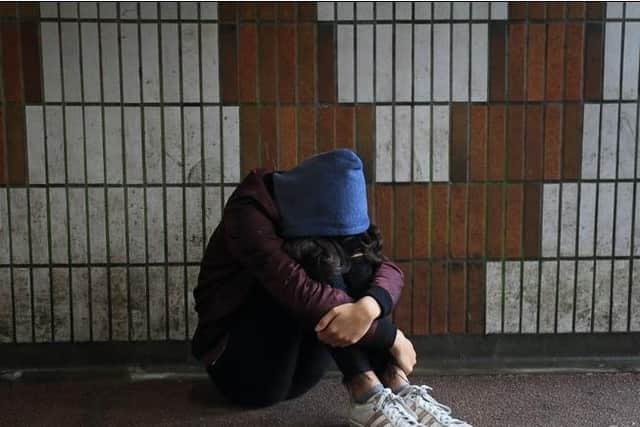Mental health referrals have dropped dramatically during the Covid pandemic – here’s how many people have missed out on help in the Herts Valleys area
and live on Freeview channel 276
Mental health referrals have fallen dramatically during the coronavirus pandemic with thousands fewer people accessing talking therapy in the Herts Valleys area for common conditions like depression or anxiety.
The number of referrals to the NHS improving access to psychological therapies (IAPT) programme in the Herts Valleys Clinical Commissioning Group (CCG) area dropped by 47.2 per cent last year.
Advertisement
Hide AdAdvertisement
Hide AdThe figures, published by NHS Digital, show 8395 people were referred for treatment between February and November 2020 compared to 15890 in the same period in 2019 – a decrease of 7495.


Across England more than a quarter of a million fewer people accessed talking therapy during the pandemic, with figures for November showing referrals dropped sharply when the second national lockdown was brought in.
The IAPT service provides short-term talking therapy for adults with anxiety disorders, depression or stress. Patients can refer themselves or go through a GP.
The biggest year-on-year drop in referrals in Herts Valleys came during April, with a decrease of 61.0 per cent compared to 2019.
Advertisement
Hide AdAdvertisement
Hide AdA spokesperson for Herts Valleys CCG said: "We put a high priority on access to talking therapies (IAPT) and the number of people accessing these therapies in west Hertfordshire has been increasing over a number of years.
"Since the start of the Covid-19 pandemic there’s been a nationwide drop in number of people accessing talking therapies – and we’re seeing this in Hertfordshire too.
"It’s important that people are aware that they can still access psychological therapies or other mental health and wellbeing services at the current time.
"Most Hertfordshire IAPT services are currently being delivered digitally in line with NHS England recommendations, but face to face sessions are still available if absolutely necessary.
Advertisement
Hide AdAdvertisement
Hide Ad"We’re putting a lot of investment in this area and are working with Hertfordshire Partnership Foundation Trust (HPFT), who are the main provider of mental health services locally, to make sure that capacity is in place to support higher numbers of patients.
"We’re also bringing in six new providers to provide more capacity and to keep waiting times to a minimum.
"In Hertfordshire waiting times for IAPT services provided by HPFT are well within national targets.
"Between February and November 2020 94% of patients were being seen within six weeks and nobody was waiting longer than 18 weeks for an appointment."
Advertisement
Hide AdAdvertisement
Hide AdMental health charity Mind said it is concerned that many people are not getting the help they need now, which could worsen their health and lead to increased pressure on services down the line.
Leila Reyburn, Mind policy and campaigns manager, said: “The coronavirus pandemic is affecting all of our lives, especially those of us living with mental health problems.
“We’re concerned that without the right support more people may reach a crisis point for their mental health, requiring more expensive and intensive treatment, further down the line.
“More needs to be done to understand this drop, but we’re concerned too many people who could benefit from therapy are not getting the help they need, and a future increase in demand could result in lengthy and varied waiting times, depending where you live.”
Advertisement
Hide AdAdvertisement
Hide AdAcross England, the sharpest drop also came in April, at 57 per cent. Referrals had recovered towards 2019 levels by October, when they were down by only 6 per cent, but fell sharply again in November, to 15 per cent below 2019 levels.
This corresponded with a four-week lockdown in England, between 5 November and 2 December, prompted by a surge in cases during October.
A spokesperson for the NHS said: “The NHS has been open to people with concerns about their mental health throughout the pandemic, including through talking therapy sessions, which the public can self-refer onto for both face-to-face and online sessions and referrals are now rapidly increasing.
“It has been a tough year, but the NHS is here to help, so anyone who is struggling should come forward for the help they need."